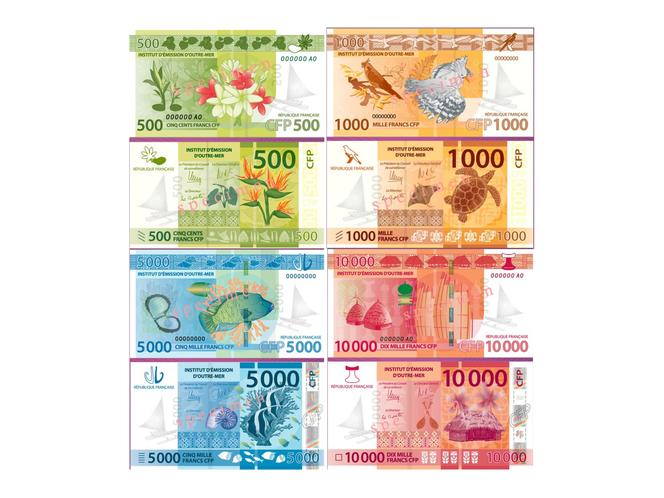


In economic theory, a currency is the symbol of sovereignty. This is also true in New Caledonia. Exclusively political reasons prevailed in 2002, when the archipelago chose not to adopt the euro at the time France gave up the franc. As a result, along with Polynesia and Wallis and Futuna, New Caledonia is still using a distinct currency: the Pacific franc.
Minted at the Monnaie de Paris before being shipped to the other side of the globe, the currency was created in 1945 to replace the franc of the French Pacific colonies, then the currency of the region. When the new franc was introduced in 1960, the Pacific franc was given fixed parity with the French currency, something maintained when the euro was introduced. This parity has remained unchanged ever since: 1,000 Pacific francs are worth €8.38. Today, the number of CFP (Change Franc Pacifique) bills and coins in circulation is equivalent to €615 million.
However, the question of a link to the euro arises regularly, often at the initiative of the three overseas territories' economic communities, who would like to simplify matters. As the exchange rate is fixed, the existence of a specific currency makes little sense, especially with these three territories being closely tied to the economy of mainland France. France is the archipelagos' main trading partner. Polynesia is the most eager of the three to join the euro, with the tourism sector emphasizing the clarity this would provide for its international clientele.
Nevertheless, the issue is divisive in New Caledonia, where the currency is seen as a symbol of independence from metropolitan France. Bills and coins in circulation are stamped with figures from local culture. Loyalists tend to favor a link with the euro, seen as a driver of integration, while those in favor of independence have made the CFP an emblem of identity and are fiercely opposed to a euro link. The authorities of Wallis and Futuna traditionally follow the decisions of New Caledonia.
The French government's position has remained unchanged since 2005 when Jacques Chirac considered that a change over to the euro would have to take place simultaneously in all three communities. If one of them were to switch to the euro, the whole monetary edifice could be called into question. Having a distinct monetary policy for just one or two archipelagos would be costly.
In the eurozone, France is an exception, having two official currencies in circulation, and two central banks with distinct monetary policy objectives. The Pacific franc is managed by the Institut d'Émission d'Outre-Mer (Institute of Overseas Issue), whose mission is not only guaranteeing price stability, like the European Central Bank, but also ensuring economic development. In practice, however, it has little room for maneuver, as the euro and CFP are linked by fixed parity. It therefore follows the decisions of the European issuing institution. This is not always in the interest of these local authorities, whose economic situation is worse than mainland France's, and could warrant a more accommodating policy.
